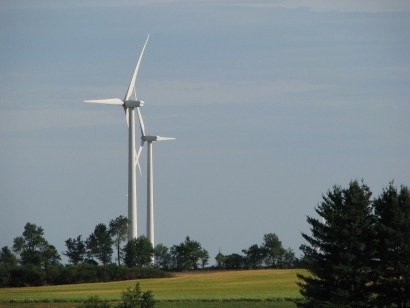
Additional investments of around £40 billion in renewable electricity generation projects are expected by the UK Department of Energy and Climate Change (DECC) following the department's publication of updated contract terms and strike prices. However, support for onshore wind and solar will be reduced from 2015 while prices for offshore wind will increase.
According to UK Energy Secretary Ed Daveythe updated contract terms and strike prices will help build a low-carbon energy mix in order to reduce emissions and bring green jobs and growth to the UK. The additional investment will generate enough clean power for 10 million homes and reduce carbon dioxide emissions by over 20 million tonnes. An increase in the amount of home-grown renewable energy will boost energy security, reduce reliance on imported fossil fuels and support up to 200,000 jobs by 2020.
In total, the reforms will help to support up to £110 billion of additional investment across the electricity by 2020, helping to insulate the UK from future world gas price increases and boosting jobs and growth. They will give energy generators a sound, sustainable and long-term basis to invest in renewable energy, particularly offshore wind.
“This package will deliver record levels of investment in green energy by 2020” said Mr Davey. “Our reforms are succeeding in attracting investors from around the world so Britain can replace our ageing power station and keep the lights on. Investors are queuing up to express their interest in these contracts. This shows that we are providing the certainty they need, our reforms are working and we are delivering ahead of schedule and to plan.”
David Ferris, leader of Osborne Clarke’s Energy & Utilities team and a leading advisor to the UK renewables sector, commented that at first glance it would be easy to say that the reduction in support for onshore wind and solar would affect those technologies massively but that actually the ‘devil is in the detail’.
“The information being released shows the changes are more in line with the accepted and continuing movement towards tapering off of subsidy levels as technology matures and costs reduce, reflecting the strength and maturity of the UK onshore renewables industry” Mr Ferris said. “If we’re not careful, we’ll lose sight of the really important detail here: this only affects future onshore solar and wind projects that are over 5MW and are not yet accredited. In short, there’s lots of great renewables projects that this simply doesn’t affect.”
The Renewable Energy Association (REA) has welcomed the government’s support for renewables although it stressed that it is vital for a wide range of businesses and technologies to be effectively supported, especially independent generators.
“The real reason that support for solar and onshore wind will go down is that they are leading the race for cost-competitiveness with fossil fuels” said Dr Nina Skorupska, REA Chief Executive. “Government policy is working and bringing down costs. The important thing is that decisions are evidence-based, not purely political, and we need to see the methodology to assess that.”
Dr Skorupska added that the big picture is that although renewables are the only low carbon technologies that can help bridge the looming supply crunch, the government has actually depressed its ambition for biomass and conventional waste to energy generation. This means more coal and gas plants will keep the UK hooked on volatile fossil fuel prices. Dr Skorupska also said that the real test for the Electricity Market Reform (EMR) is in its policy design and there is more work to be done to ensure that EMR works for independent generators as well as the big utilities.
For additional information:

